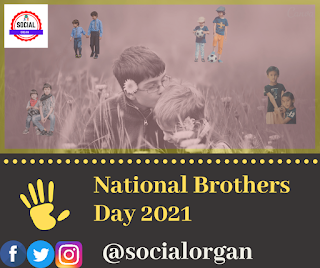International day of Social Justice History. Theme for 2023 and Activities to be done.
World Day of Social Justice
- An Article by The Social Organ
World Day of Social Justice is observed on February 20 every year to promote the idea of social justice and reduce inequality in all aspects of society. The day highlights the need to promote social justice by addressing issues such as poverty, unemployment, discrimination, exclusion, and legal aid. The day is celebrated worldwide with various events, including rallies, seminars, and discussions to raise awareness and inspire action toward achieving social justice.
The World Day of Social Justice (alternatively referred to as Social Justice Equality Day) is an international day that recognizes the critical role of fostering social justice by tackling poverty, marginalization, gender inequality, unemployment, human rights, and social protection. Numerous organizations, including the United Nations, the American Library Association (ALA), and the International Labour Organization (ILO), have issued statements emphasizing the crucial significance of social justice. Numerous organizations also define ways to increase social justice by eradicating poverty, social and economic marginalization, and unemployment.
Social justice is the concept of fair and equitable distribution of resources and opportunities in society. It is the idea that everyone deserves to be treated with dignity and respect, regardless of gender, race, religion, or socioeconomic status. Social justice aims to eliminate discrimination and oppression and promote equality, human rights, and social welfare.
However, achieving social justice is a challenging task, as it requires the involvement of every individual and institution in society. It requires a shift in attitudes and values, as well as policies and laws that promote equality and protect the rights of all individuals. The World Day of Social Justice is an opportunity to reflect on the progress toward achieving social justice and the work that still needs to be done.
One of the critical issues that social justice advocates must address is poverty. Poverty is a significant barrier to social justice, as it limits an individual's ability to access basic needs such as education, healthcare, and housing. Poverty is not just an individual problem; it is a societal issue that must be addressed through policy changes and social programs. Governments and organizations must invest in programs that support low-income individuals and families, including social assistance programs, affordable housing initiatives, and education and training opportunities.
Another crucial issue that social justice advocates must address is discrimination. Discrimination takes many forms, including racism, sexism, homophobia, and ableism, and it limits individuals' opportunities to access education, employment, and healthcare. Discrimination also creates social divides and perpetuates inequality. Addressing discrimination requires a change in attitudes and behaviors and the implementation of policies that promote inclusion and diversity. Governments and organizations must work together to create policies that protect marginalized groups and promote their participation in all aspects of society.
Achieving social justice also requires addressing the issue of inequality. Inequality takes many forms, including income inequality, wealth inequality, and educational inequality. Inequality limits individuals' opportunities and perpetuates poverty and discrimination. Addressing inequality requires a shift in policies and programs that promote equality and social welfare. Governments and organizations must invest in policies that support income redistribution, progressive taxation, and affordable healthcare and education.
Finally, achieving social justice requires addressing environmental issues. Environmental degradation disproportionately affects marginalized communities, including low-income individuals and communities of color. Environmental degradation also perpetuates poverty and limits opportunities for social and economic mobility. Addressing environmental issues requires a shift in policies and behaviors that promote sustainable development and protect the environment. Governments and organizations must invest in policies that promote renewable energy, waste reduction, and conservation.
In conclusion, the World Day of Social Justice is an opportunity to reflect on the progress made toward achieving social justice and the work that still needs to be done. Achieving social justice requires addressing critical issues such as poverty, discrimination, inequality, and environmental degradation. Governments and organizations must invest in policies and programs that promote equality, protect the rights of all individuals, and create opportunities for social and economic mobility. Achieving social justice is a challenging task, but it is essential for creating a just and equitable society where every individual has the opportunity to thrive. On this World Day of Social Justice, let us commit ourselves to work towards a fairer and more just world for all.
We request you take a moment for Social Justice and treat everyone equally.



Great work
ReplyDeleteGood work
ReplyDeleteNice article
ReplyDelete